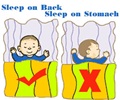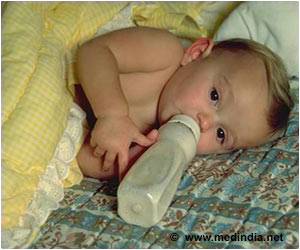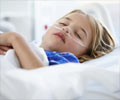Every year, approximately 3,400 infants die due to sudden infant death syndrome (SIDS). While rates are decreasing, parents must understand how to decrease the hazards.
- Sudden unexpected death in infancy (SUDI) is the term used to describe a baby’s sudden and unexpected death when there is no apparent cause of death
- By creating a safe sleeping environment for your infant, you can help lower his or her risk of SUDI (safe cot, safe mattress, safe bedding)
- If possible, breastfeed your child. Breastfeeding significantly minimizes your baby’s chance of SUDI
Read More..
What is Sudden Unexpected Death in Infants (SUDI)
SUDI is more prevalent in babies aged two to four months; however, it can occur in babies of any age. Babies that are premature, ill, or have a low birth weight are at a higher risk. SUDI can occur in both breastfeeding and bottle-fed newborns. Around 60% of those who die are boys (1✔ ✔Trusted SourceSudden unexpected death in infancy (SUDI), SIDS and fatal sleeping accidents
Go to source).
Causes of Sudden Unexpected Death in Infants (SUDI)
SUDI does not have a known cause. There are no consistent warning indications that a SUDI is imminent, but there are risk factors to consider. Vulnerability, age, and external risk factors such as overheating and unsafe sleeping practices are examples of these. Minor infections are frequently identified in SUDI newborns; however, these infections are minor and do not cause death. The investigation into the causes of SUDI continues (5✔ ✔Trusted SourceSudden infant death syndrome (SIDS)
Go to source).
Lowering the Risk of Sudden Unexpected Death in Infants (SUDI)
A few easy childcare habits can significantly reduce your baby’s risk of SUDI:- Always make sure your baby sleeps on their back.
- Keep the baby’s face and head exposed.
- Prevent your infant from being exposed to tobacco smoke before and after delivery.
- Access to night and day sleeping conditions that are safe (safe cot, with a firm and flat mattress which is not tilted and safe bedding)
- For the first 6-12 months, keep the infant in a safe cot in the parent’s or adult caregiver’s room.
- If you have twins or multiples, each infant requires a safe sleeping environment.
- Your infant should sleep in a safe cot in your or an adult caregiver’s room.
About Safe Sleep
Go to source).
Safe Sleeping Guidelines for Infants
It is critical to place your infant to sleep on their back. If your infant sleeps on their stomach, their chance of SUDI increases considerably. Healthy babies who sleep on their backs are less likely to choke on vomit than babies who sleep on their stomachs. Back-sleeping keeps newborns’ airways clear and allows their defensive reflexes (gag, swallow, and arousal) to function optimally.Sleeping on your baby’s back may gently flatten the back of their skull over time. This is known as positional plagiocephaly. It normally recovers on its own before the child’s first birthday, with no medical intervention. You can assist by performing supervised Tummy Time while the baby is awake and not tired or hungry (2✔ ✔Trusted Source
about Sudden unexpected death in infants (SUDI and SIDS)
Go to source).
For the first six to twelve months of their life, your baby should sleep in their safe sleeping environment in your room, near to your bed. Sleeping a newborn in the same room, but not in the same bed, with parents or caregivers in the first six to twelve months of life has been proven to minimize the risk of SUDI by 50%. This is supposed to be because the parents or caregivers can easily view the newborn and ensure that it is safe.
This protective effect is lost when the infant is in a room with other children, most likely because the children are unsure if the newborn is safe or not.
In certain SUDI cases, newborns are discovered with blankets covering their faces. Some preventative measures include:
- Place the infant on their back with their feet at the bottom of the cot.
- Bring the bedding up to the level of your chest and firmly tuck it in on three sides.
- Use a safe sleeping bag that has full sleeves or arm holes to allow baby to use their arms freely and no hoods or head coverings to prevent babies from slipping inside the bag.
- Use a firm, flat, well-fitting, non-tilted mattress.
- Remove any soft bedding, such as quilts, doonas, duvets, or pillows. Cot bumpers should never be used.
- Keep soft toys away from the cot (3✔ ✔Trusted Source
Reducing SUDI and SIDS risk: in pictures
Go to source).
Exposure to Smoke Increases Risk of Sudden Unexpected Death in Infants (SUDI)
Tobacco smoke exposure in utero (during pregnancy) increases a baby’s chance of SUDI. Babies who have been exposed to tobacco smoke after birth are likewise at a higher risk of SUDI (2✔ ✔Trusted Sourceabout Sudden unexpected death in infants (SUDI and SIDS)
Go to source).
Stop smoking before or as soon as possible during your pregnancy. The less you smoke, the less likely your baby will get SUDI.
Encourage your partner to stop smoking. Always make your home a smoke-free zone, and don’t let anyone smoke near your kid or where he or she sleeps.
Factors that Influence Sudden Unexpected Death in Infants (SUDI)
Temperature:
Overheating is a major risk factor for SUDI. Babies regulate their body temperature mostly with their faces and head. Wear your kid similarly to how you would dress yourself to stay warm. To keep the newborn secure, hats and bonnets must be removed before sleeping. If your baby has a fever, use fewer or no bed covers and seek medical attention as needed.Baby-care products:
There is no clear scientific evidence that anyone baby-care product reduces the incidence of SUDI. This comprises baby positioning aids such as anti-roll devices and gadgets that hold a baby in place. Adding more objects to the cot raises the risk of the baby overheating and suffocating. These are big dangers for SUDI carriers or slings used for baby-wearing - choose a tight carrier/sling that keeps your baby upright so you can see their face, their back is straight, and their chin is off their chest.Sharing a sleeping surface:
It can increase the likelihood of SUDI. It is never safe to fall asleep when holding a baby on a couch, chair, or beanbag. If you fear you might fall asleep, move yourself and your infant to a safe sleeping surface. It is especially important not to share a bed or lie down holding a baby if you are: overly tired or unwell; you or your partner have recently consumed alcohol; you or your partner smoke, even if you do not smoke in the bedroom; you or your partner have taken any drugs that make you feel sleepy or less aware; and your baby is very young (less than four months old), born prematurely, or is small for their gestational age (2✔ ✔Trusted Source
about Sudden unexpected death in infants (SUDI and SIDS)
Go to source).
Immunization and Sudden Unexpected Death in Infants (SUDI)
SUDI is most frequent between the ages of two and four months. This is the age at which most babies get immunized. However, there is no connection. There is some evidence that immunized babies are less likely to have SUDI than non-immunized neonates.Feelings of Guilt and Remorse following Sudden Unexpected Death in Infants (SUDI)
Guilt, wrath, anxiety, blame, and despair are common feelings experienced by bereaved parents. Because the reasons for SUDI are unknown, parents frequently invent their explanations and blame themselves.Talking with others outside the family, such as other bereaved parents, doctors, social workers, or counsellors, may be beneficial for mourning parents. Many people, however, find that their most useful support comes from their own family and friends.
References:
- Sudden unexpected death in infancy (SUDI), SIDS and fatal sleeping accidents - (https://raisingchildren.net.au/guides/a-z-health-reference/sudi)
- about Sudden unexpected death in infants (SUDI and SIDS) - (https://www.betterhealth.vic.gov.au/health/healthyliving/sudden-unexpected-death-in-infants-sudi-and-sids)
- Reducing SUDI and SIDS risk: in pictures - (https://raisingchildren.net.au/newborns/sleep/sleep-safety/reducing-sudi-sids-risk#)
- About Safe Sleep - (https://www.stanfordchildrens.org/en/about/government-community/safety-tips/safe-sleep)
- Sudden infant death syndrome (SIDS) - (https://www.mayoclinic.org/diseases-conditions/sudden-infant-death-syndrome/symptoms-causes/syc-20352800)
Source-Medindia













